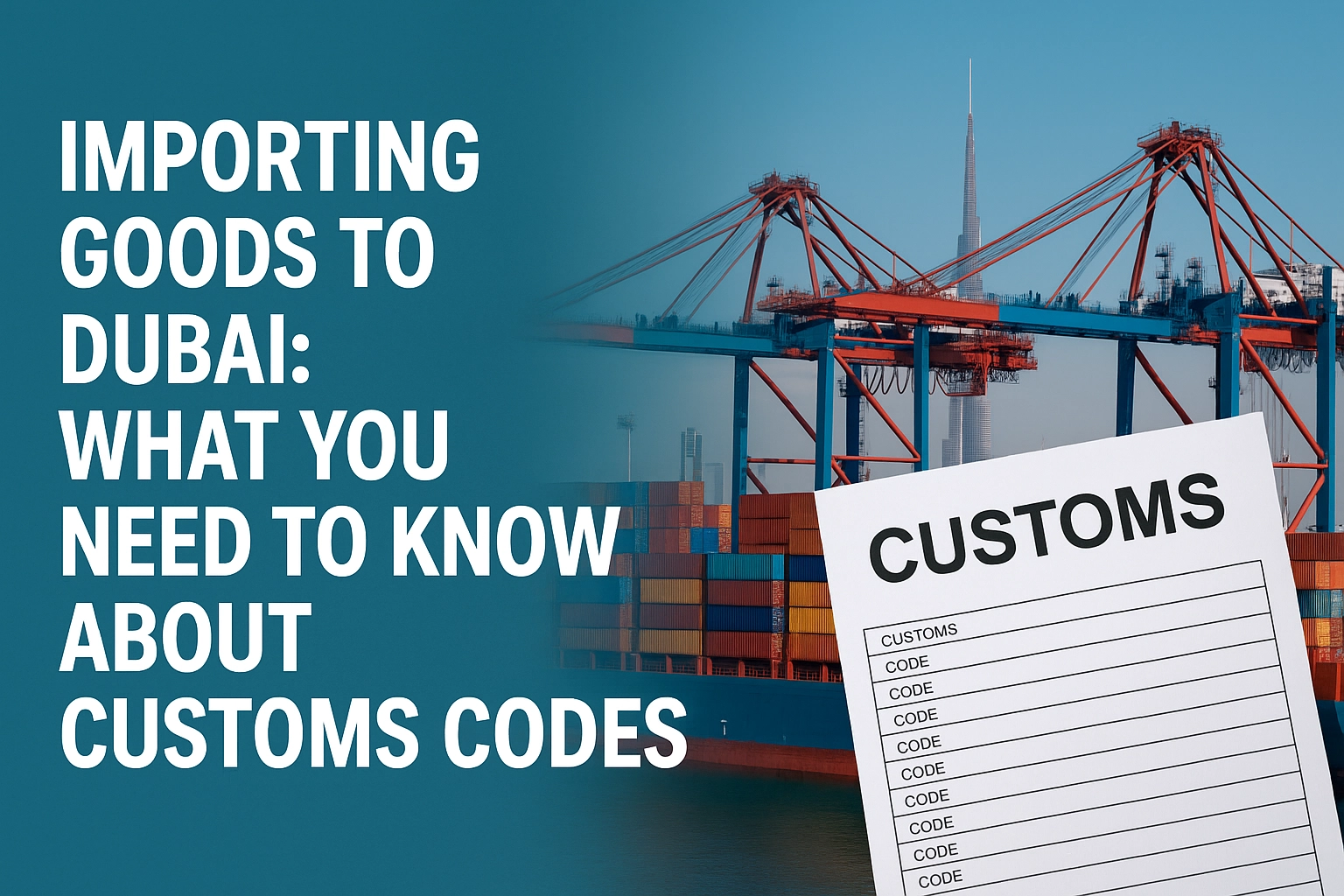Blog
Importing Goods to Dubai: What You Need to Know About Customs Codes
Dubai’s position as a global trade hub makes it a prime destination for importing goods from around the world. However, smooth and efficient import operations require a clear understanding of customs codes—the classification system used to identify goods for customs clearance, tariffs, and compliance purposes.
Misclassifying goods can result in delays, fines, or even seizure of shipments, so it’s crucial to get it right from the start.
What Are Customs Codes?
Customs codes, also known as HS (Harmonized System) codes or tariff codes, are internationally standardized numerical codes used to classify traded products.
- The first six digits are part of the global HS system maintained by the World Customs Organization (WCO).
- Additional digits may be added at the national level to define product categories more precisely.
In the UAE, these codes are essential for:
- Determining the correct import duties and taxes.
- Ensuring compliance with import restrictions.
- Facilitating customs clearance.
Why Are Customs Codes Important for Dubai Imports?
- Accurate Duty Calculation
Customs codes determine the tariff rate applied to your goods. Incorrect codes can lead to overpayment or underpayment of duties. - Compliance with UAE Regulations
Certain products require special permits, certificates, or inspections. Correct codes help identify these requirements before your goods arrive. - Faster Customs Clearance
Accurate classification ensures your shipment moves through Dubai Customs without unnecessary delays.
How to Find the Right Customs Code
- Use the Dubai Customs HS Code Search Tool — available online through the Dubai Trade portal.
- Consult your freight forwarder or customs broker — they have expertise in classifying goods.
- Refer to product specifications — including material composition, use, and manufacturing process.
Common Mistakes to Avoid
- Guessing the code instead of verifying it through official sources.
- Using outdated codes from previous shipments.
- Overlooking product changes that may alter the classification.
Penalties for Incorrect Classification
Dubai Customs can impose:
- Fines for misdeclaration.
- Additional duties or back payments.
- Shipment confiscation in severe cases.
Expert Guidance with Caspian Accounting and Bookkeeping
Navigating Dubai’s customs regulations can be complex, especially for first-time importers. Caspian Accounting and Bookkeeping offers expert advisory services to help you identify the correct customs codes, ensure compliance with import laws, and streamline your supply chain processes.
Need assistance with customs compliance? Contact Caspian Accounting and Bookkeeping today for professional import advisory services.

